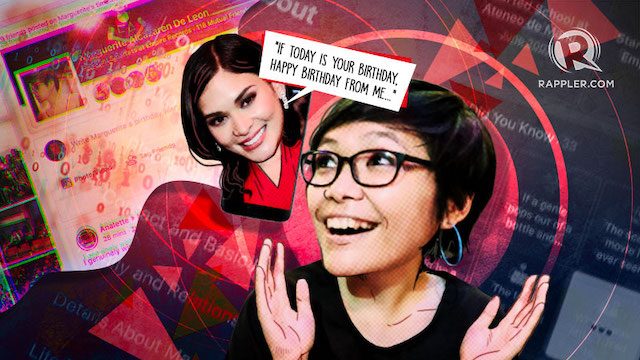SUMMARY
This is AI generated summarization, which may have errors. For context, always refer to the full article.

Before I start this short essay, I’d like to cover my bases first: To all Pia Wurtzbach stans out there, I assure you that this piece is not an affront to our Miss Universe 2015. Her grace and calm I can only aspire to, and her collarbones will continue to be worshipped long after we are gone.
—
I write this piece on my 34th birthday. It’s usually just like any other day, except I treat myself to a thing or two, and am inundated on Facebook by many warm well wishes. I wake up, then, to quite a few notifications on my phone, which leads to me to just continue browsing Facebook while I’m still in bed.
So I was watching this random video, only for it be interrupted by an ad, as usual. I figured I’d just let the ad play itself out, but I was not expecting what I saw and heard in the next 15 seconds. Pia Wurtzbach – beautiful, stately Pia Wurtzbach – stared directly at me and said something like, “If today is your birthday, happy birthday from me and [product]!” Then the video resumed playing, and I was left staring at my phone as if it were possessed.
Having worked in digital media for many years, I knew full well it was because of the personal information I had willingly shared with Facebook when I’d first signed up for it. Facebook knew my birthday (and location, and closest friends, and food preferences, and shopping habits, and probably the part of the body I soap first in the shower), and sold this information to advertisers. The advertisers then orchestrated this ad to come out right when they knew it was my birthday and when my eyeballs and ears were in rapt attention. (READ: Why Facebook’s new ‘privacy cop’ is doomed to fail)
It’s not magic. It’s not a dystopian daydream. It’s the here and now, and we’ve consciously steered ourselves in this direction. Personalized greetings used to come from, well, persons. Now they come from a few seconds’ worth of Pia, who has no idea who she’s saying happy birthday to.
That we have signed off our private lives to corporations has been a major issue these past few years, and this hold on our online behavior has had world-shaking consequences, from Brexit, to Donald Trump, to our own dirty daddy Duterte. We see this on the news more and more, and to call attention to it is certainly crucial for all of us. (READ: Did Cambridge Analytica use Filipinos’ Facebook data to help Duterte win?)
But I suppose it’s also worth pointing out the smaller, seemingly harmless phenomena as well, starting with the way a super-quick, super-simple online ad just managed to co-opt the day I was born – a fact once significant to just me and my loved ones – as a way to sell me sore throat lozenges.
No, I was not harmed by this ad. It will not stop me from going about my day like I’d planned. But once I swing by a pharmacy and see a pack of Pia’s lozenges, I will have no choice but to have a bizarrely clear acknowledgement of it, given how personally its ad was able to target me, and that is exactly what the corporate overlords want.
What will the next years (or even months) bring? Julia Barretto congratulating you on your wedding day? #KathNiel cheering you on before your college entrance exams? Derek Ramsey consoling you after your father’s death? I may be exaggerating (or am I?), but my point is that our privacy (and, frankly, our own mind) is being used on us, to someone else’s benefit, in ways that we never could have predicted a few years ago.
So today, I will try to make a humble prediction: The rise of deepfakes in targeted ads. And I don’t just mean manipulating celebrity likenesses to make it seem like they’re holding an intimate conversation with you (while sipping X brand of soda). The likenesses could be that of our loved ones – the people we trust, the people whose lives are so closely entwined with ours. Want to look good? A deepfake of your ex can show you where to shop so you can win his heart back. Feeling hungry? A deepfake of your mom could recommend a new restaurant with pasta almost as good as hers. (READ: Chinese ‘deepfake’ app goes viral, puts user faces on actors)
You know they’re fake. You know it’s because corporations have photos of everyone, because everyone has willingly submitted selfies to one face swap app after another. But these ads will strike a chord with you whether you like it or not, because a roomful of ad executives are on a hefty payroll to make sure they do.
This may all sound silly and unlikely right now, but if someone last year told me Pia Wurtzbach would look straight into my eyes the morning of my birthday and wish it were a happy one, I would have laughed it off too. So if I may ask for a birthday wish from you, it’s to be mindful of the content that blips by you, and to say something when it instinctively feels wrong.
It would be best to speak up for yourself, before a deepfake does the speaking for you. – Rappler.com
Add a comment
How does this make you feel?
There are no comments yet. Add your comment to start the conversation.